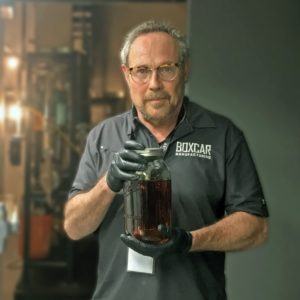Dr. Del Potter is a medical anthropologist, an entrepreneur, and the Chief Science Officer of Aya Biosciences, a biopharmaceutical startup that develops next-gen therapeutic cannabis and psychedelic compounds.
Dr. Potter earned his PhD in medical anthropology in 1980 through a joint program of UC Berkeley and UCSF Medical School. His doctoral research specialized in psychiatric anthropology, neuropharmacology and ethnopsychopharmacology. He completed his psychotherapy clinical training at San Francisco Psychoanalytic Institute.
On his Clubhouse profile, Dr. Potter wrote that his postdoctoral ethnographic research in Brazil, Colombia, and Ecuador initially investigated “the cross-cultural personality development and psychohistory of the shamanic practitioner,” but later evolved to focus more on the composition and effects of shamanic plant medicine. He stated an intention to “improve cultural understanding of these compounds” and integrate that knowledge with pharmaceutical science.
Since 2018, Dr. Potter has served as Chief Science Officer of Leef Labs, the parent company of Aya, which launched in January 2020. As Aya’s CSO, he leads research efforts to create new therapeutic compounds from cannabinoids and psychedelics. In addition to Aya, several other psychedelic startups in which Dr. Potter is involved use big data to tailor the clinical application of their products.
As a featured panelist for Meet Delic’s “Microdose” event in 2020, Dr. Potter discussed his ongoing work to develop a library of psychedelic substances, cannabis, and other botanicals. The collection would support research and discovery of new subspecies and strains with novel therapeutic potential.
In a Reality Sandwich interview with Delic Corp CEO Jackee Stang, Dr. Potter proclaimed himself a “big fan of synthetically constructed Western [psychedelic] product.” He disclosed that he “became an underground chemist for a long and colorful history” after attending dinners at Alexander Shulgin’s home, where he was exposed to work by Shulgin and many other experts in a range of disciplines. Dr. Potter also shared his recent research efforts to synthetically lengthen THC (tetrahydrocannabinol) in order to improve its bioactivity and, ideally, develop “a family of pain compounds that may replace opiates.”
